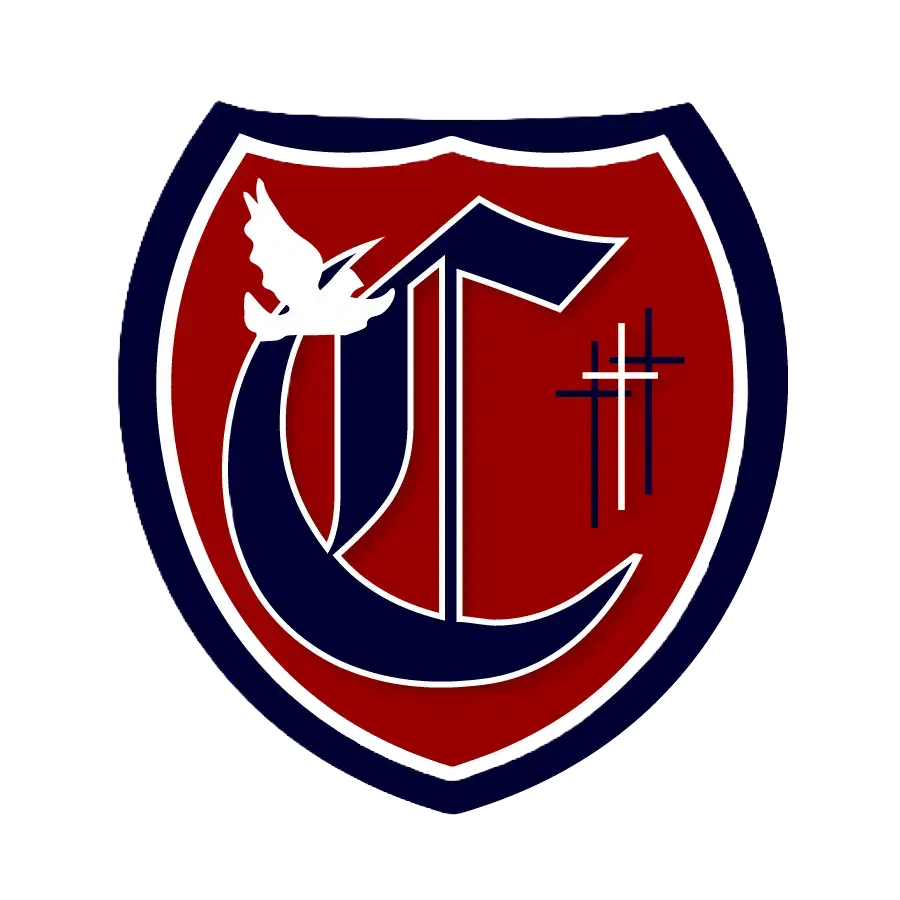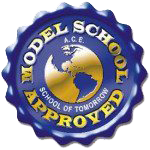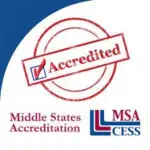GENERAL DESCRIPTION
Goal: The teacher shall prayerfully help students learn attitudes, skills, and subject matter that will contribute to their development as mature, able, and responsible Christians to the praise and glory of God.
Overview: The teacher shall be a born-again college graduate, certified or certifiable, who feels called of God to the teaching profession. Other qualifications may be added by the Board as deemed appropriate.
Contracted by: School board upon recommendation of the administrator for one year.
Responsible to: Administrator.
Supervises: May supervise student teachers, aides, and volunteers.
Evaluation: Teacher performance will be evaluated in accordance with provisions of the Board’s policy on evaluation of professional personnel and this job description. Details are found in the Employee Handbook.
Type of Position: X Exempt; Nonexempt; X Salaried; Hourly
REQUIRED PERSONAL QUALITIES
The teacher shall:
1. Have received Jesus Christ as his/her personal Savior.
2. Believe that the Bible is God’s Word and standard for faith and daily living.
3. Be in whole-hearted agreement with the school’s Statement of Faith and Christian philosophy of education.
4. Be a Christian role model in attitude, speech, and actions toward others. This includes being committed to God’s Biblical standards for sexual conduct. Luke 6:40.
5. Be a member in good standing at a local, evangelical church that has a Statement of Faith in agreement with the school’s Statement of Faith.
6. Show by example the importance of Scripture study and memorization, prayer, witnessing, and unity in the Body of Christ.
7. Have the spiritual maturity, academic ability, and personal leadership qualities to “train up a child in the way he should go.”
ADDITIONAL PERSONAL QUALITIES
The teacher shall:
1. Recognize the role of parents as primarily responsible before God for their children’s education and be prepared to assist them in that task.
2. Demonstrate the character qualities of enthusiasm, courtesy, flexibility, integrity, gratitude, kindness, self-control, perseverance, and punctuality.
3. Meet everyday stress with emotional stability, objectivity, and optimism.
4. Maintain a personal appearance that is a Christian role model of cleanliness, modesty, good taste, and agreement with school policy.
5. Use acceptable English in written and oral communication. Speak with clear articulation.
6. Respectfully submit and be loyal to constituted authority.
7. Shall notify the administration of any policy he/she is unable to support.
8. Refuse to use or circulate confidential information inappropriately.
9. Place his/her teaching ministry ahead of other jobs or volunteer activities.
10. Make an effort to appreciate and understand the uniqueness of the community.
JOB DESCRIPTION – Essential Functions
The teacher shall:
1. Reflect the purpose of the school which is to honor Christ in every class and in every activity.
2. Motivate students to accept God’s gift of salvation and help them grow in their faith through their witness and Christian role modeling.
3. Lead students to a realization of their self-worth in Christ.
4. Cooperate with the Board and administration in implementing all policies, procedures, and directives governing the operation of the school.
5. Teach classes as assigned following prescribed scope and sequence as scheduled by the administrator.
6. Integrate biblical principles and the Christian philosophy of education throughout the curriculum and activities.
7. Keep proper discipline in the classroom and on the school premises for a good learning environment.
8. Maintain a clean, attractive, well-ordered classroom.
9. Plan broadly through the use of semester and quarterly plans and objectives, and more currently through the use of a Lesson Plan Book.
10. Plan a program of study that, as much as possible, meets the individual needs, interests, and abilities of the students, challenging each to do his/her best work.
11. Utilize valid teaching techniques to achieve curriculum goals within the framework of the school’s philosophy.
12. Employ a variety of instructional aids, methods, and materials that will provide for creative teaching to reach the whole child: spiritual, mental, physical, social, and emotional.
13. Plan through approved channels the balanced classroom use of field trips, guest speakers, and other media.
14. Use homework effectively for drill, review, enrichment, or project work.
15. Assess the learning of students on a regular basis and provide progress reports as required.
16. Maintain regular and accurate attendance and grade records to meet the demands for a comprehensive knowledge of each student’s progress.
17. Keep students, parents, and the administration adequately informed of progress or deficiencies and give sufficient notice of failure.
18. Recognize the need for good public relations. Represent the school in a favorable and professional manner to the school’s constituency and the general public.
19. Develop and maintain rapport with students, parents, and staff by treating others with friendliness, dignity, and consideration.
20. Follow the Matthew 18 principle in dealing with conflict with students, parents, staff, and administration.
21. Seek the counsel of the administrator, colleagues, and parents while maintaining a teachable attitude.
22. Attend and participate in scheduled devotional, inservice, retreats, committee, faculty, and Parent Teacher Fellowship meetings.
23. Know the procedures for dealing with issues of an emergency nature.
24. Inform the administration in a timely manner if unable to fulfill any duty assigned. Prepare adequate information and materials for a substitute teacher.
JOB DESCRIPTION – Supplemental Functions
The teacher shall:
1. Supervise extracurricular activities, organizations, and outings as assigned.
2. Utilize educational opportunities and evaluation processes for professional growth.
3. Provide input and constructive recommendations for school administrative and managerial functions.
4. Support the broader program of the school by attending extracurricular activities when possible.
5. Perform any other duties that may be assigned by the administration.
Physical Requirements to Fulfill the Essential Functions of this Position
| FREQUENCY OF REQUIRED EXPOSURE/USE WORK ENVIRONMENT | OCCASIONAL | FREQUENT | DAILY |
| COLD (50 F or less) | X | ||
| HEAT (90 F or more) | X | ||
| GASES/FUMES/DUST | X | ||
| CHEMICALS/SOLVENTS | X | ||
| NOISE | X | ||
| CLIMBING STAIRS | X | ||
| CRAWLING OR KNEELING | X | ||
| STANDING | X | ||
| SITTING | X | ||
| WALKING | X | ||
| RUNNING | X | ||
| BENDING | X | ||
| REACHING OVER SHOULDER | X | ||
| PUSHING | X | ||
| PULLING | X | ||
| MOVING HEAVY ITEMS | |||
| LIFTING/LOWERING: | |||
| Up to 20 lbs | X | ||
| Up to 50 lbs | X | ||
| LIFTING OVER SHOULDER: | |||
| Up to 20 lbs | X | ||
| CARRYING: | |||
| Up to 20 lbs | X | ||
| Up to 50 lbs | X |




